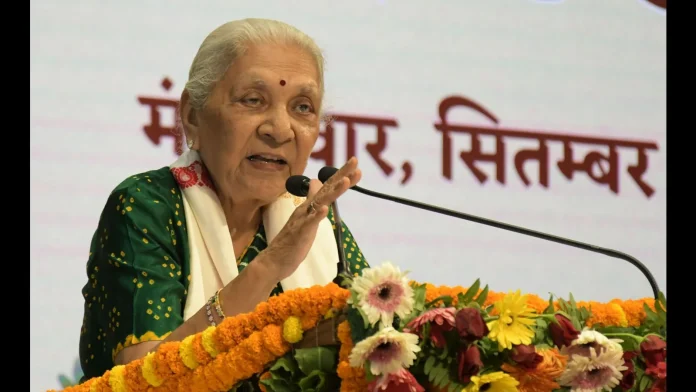Lucknow: Uttar Pradesh Governor Anandiben Patel sparked debate with comments on live-in relationships, urging citizens to visit orphanages to understand their alleged consequences. Speaking at a public event, Patel suggested that children in orphanages often result from unstable or non-traditional partnerships.
“Those who talk about live-in relationships should visit orphanages to see the consequences,” she stated, emphasizing the importance of traditional family structures. Her remarks reflect a conservative stance on societal norms, highlighting concerns about the impact of non-marital relationships on children and family cohesion.
The statement has drawn mixed reactions. Supporters praised the Governor for defending moral values and cautioning against lifestyle choices they perceive as harmful to society. Critics, however, accused her of stigmatizing orphaned children and undermining individual freedoms, arguing that the causes of orphanhood are complex and not solely linked to personal relationship choices.
Civil society activists stressed the need for a nuanced discussion on cohabitation, personal rights, and the social factors that contribute to child welfare. Legal experts note that live-in relationships are recognized under Indian law with specific protections for partners, making the debate as much about societal perceptions as legal realities.
The comments have reignited conversations about family ethics, personal freedom, and child welfare in India. Observers note that such statements from high-ranking officials influence public discourse and may shape societal attitudes toward unconventional family arrangements. The debate underscores tensions between conservative viewpoints and evolving perspectives on personal relationships in contemporary India.




